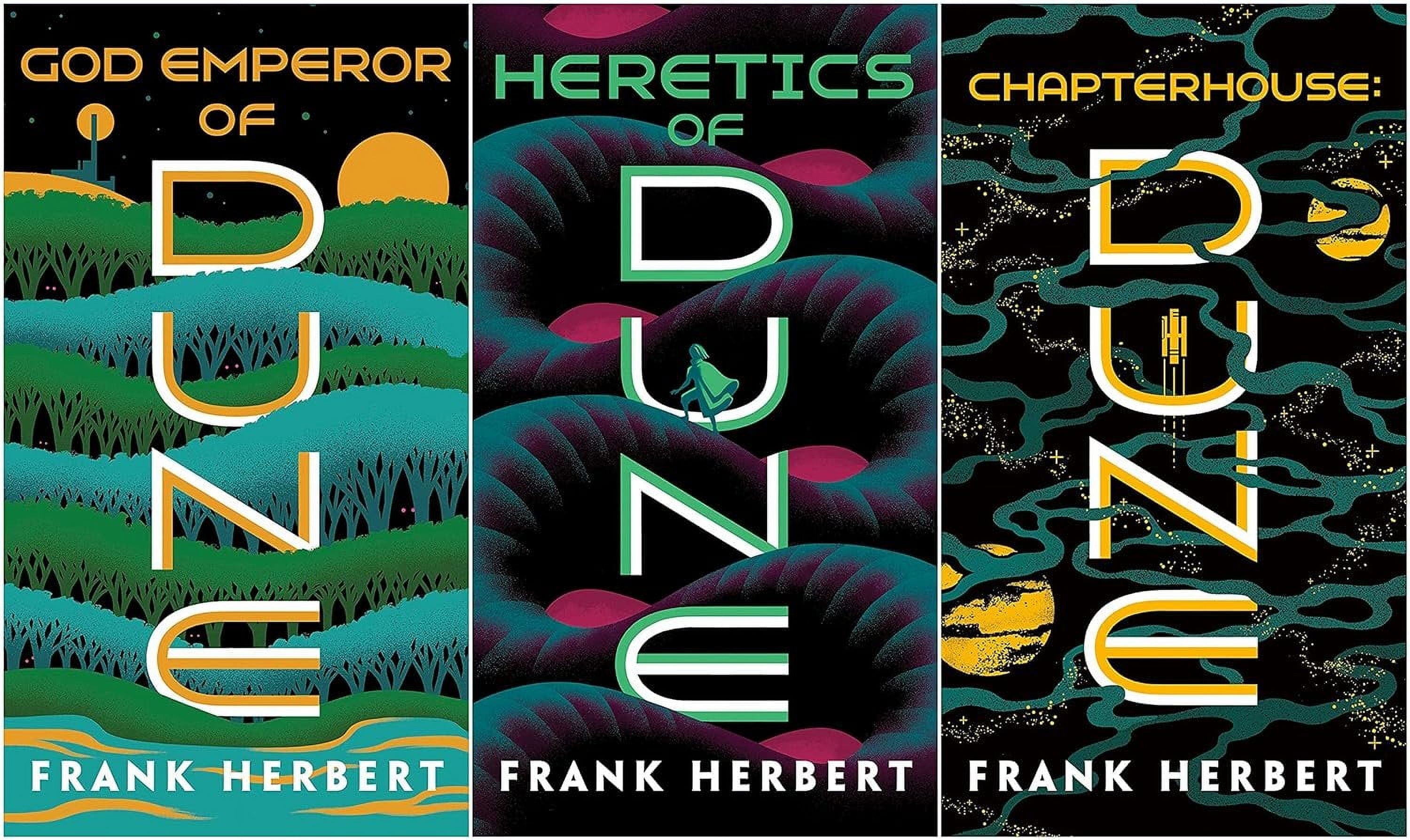The Dune Book Series: A Comprehensive Guide

Frank Herbert’s Dune series is a cornerstone of science fiction, renowned for its complex world-building, intricate characters, and enduring cultural impact. This comprehensive guide explores the Dune books, their author, the series’ literary and cinematic adaptations, and its lasting influence on readers and popular culture. We’ll delve into the various aspects of the Dune universe, examining its themes, exploring its literary merit, and investigating its significant impact on society. Whether you’re a seasoned Dune enthusiast or a newcomer eager to explore Arrakis, this guide offers a detailed roadmap to navigate this sprawling and captivating saga.

Frank Herbert: The Mastermind Behind Dune
Frank Herbert (1920-1986), the creator of the Dune universe, was a prolific writer whose diverse experiences significantly shaped his literary output. Before achieving literary fame with Dune, Herbert worked as a journalist, editor, and even an oyster diver, among other occupations. This multifaceted background instilled in him a keen understanding of human nature, ecological systems, and political power dynamics—all key elements of his celebrated series.

Herbert’s writing style is characterized by its meticulous detail and depth. He weaves intricate plots with philosophical and ecological themes, seamlessly blending hard science fiction elements with social and political commentary. His detailed world-building, particularly the harsh environment of Arrakis and its complex interplay of human societies, is a testament to his meticulous research and imaginative prowess. He masterfully explores themes of power, religion, ecology, and the human condition, creating a richly textured universe that continues to resonate with readers decades after its inception. His influences range from historical events and political systems to scientific concepts and environmental concerns, enriching the Dune saga with intellectual layers that invite multiple readings and interpretations.

Herbert’s Writing Style and Inspirations
Herbert’s writing is known for its density and complexity. His prose is often descriptive and evocative, immersing readers in the sensory details of Arrakis’s harsh environment. He meticulously details the intricacies of the Fremen culture, their customs, and their deeply held beliefs, making them a compelling and memorable part of the saga.
Herbert’s inspirations were as diverse as his own life experiences. The environmental concerns of his time, notably the impact of human actions on the natural world, are reflected in the delicate ecological balance depicted in Arrakis and its vulnerability to exploitation. Political ideologies and historical power struggles also influenced his narratives, providing the backdrop for the conflict between noble houses and the rise and fall of empires.
Exploring the Dune Books: Genres, Themes, and Literary Merit
The Dune series is classified as science fiction, but it transcends the genre’s typical boundaries. The series’ complexity aligns it with space opera, epic fantasy, and even philosophical fiction. Within the framework of science fiction, Herbert explores profound questions about humanity’s relationship with power, religion, and the environment, making it a work of substantial literary merit.
The Six Original Novels by Frank Herbert
The six original novels in the Dune series, written by Frank Herbert himself, form the core of the saga. Each book builds upon the preceding ones, expanding the universe’s scope and intricacy.
- Dune (1965): This seminal work introduces the reader to the desert planet Arrakis, the source of the precious spice melange, and the Atreides family’s struggle for control amidst political intrigue and ecological challenges. It sets the stage for the entire saga.
- Dune Messiah (1969): This sequel focuses on Paul Atreides’s reign as Emperor and the challenges he faces in maintaining his power. It explores the ethical dilemmas of absolute power and the unintended consequences of prophecy.
- Children of Dune (1976): This installment delves into the lives of Paul’s children, Leto II and Ghanima, and their burgeoning powers. It further explores the themes of prophecy, genetics, and the manipulation of political power.
- God Emperor of Dune (1981): Set millennia after the events of Children of Dune, this novel depicts Leto II’s rule as a God-Emperor, showcasing his drastic measures to ensure humanity’s survival. It presents a stark vision of power and sacrifice.
- Heretics of Dune (1984): This book explores the aftermath of Leto II’s reign, focusing on the resurgence of old conflicts and the rise of new factions vying for control. The themes of religion and the power of belief are prominent.
- Chapterhouse: Dune (1985): This final novel, unfinished at Herbert’s death, leaves the fate of the universe uncertain as the Bene Gesserit grapple with the threats to spice production and the survival of humanity.
The Expanded Universe: Brian Herbert and Kevin J. Anderson
After Frank Herbert’s death, his son, Brian Herbert, collaborated with Kevin J. Anderson to expand the Dune universe with several prequel and sequel novels. These works, while officially part of the Dune canon, vary in quality and reception among fans. They often serve to fill in gaps in the original storyline, exploring events before and after the original six novels. These books provide additional context and detail but should ideally be read after completing the original Dune hexalogy.
The Cultural Impact of Dune: Adaptations, Awards, and Communities
The Dune series has had a profound cultural impact, influencing science fiction and popular culture in numerous ways. The series has received numerous accolades and inspired various adaptations, from films and television shows to video games and other media.
Literary Influence and Adaptations
The Dune series has had a significant influence on the science fiction genre, inspiring numerous writers and shaping the landscape of space opera and epic fantasy. The complexity of its plot and the depth of its philosophical themes have cemented its status as a seminal work in the genre, impacting the storytelling techniques and thematic explorations of countless subsequent authors.
The enduring popularity of Dune has led to multiple film and television adaptations. Most notably, Denis Villeneuve’s recent film adaptations of Dune and Dune: Part Two have renewed interest in Herbert’s work, bringing the intricate world of Arrakis to a new generation of viewers. Further adaptations continue to be developed, demonstrating the continuing appeal of the source material.
Awards and Recognition
The original Dune novel won the prestigious Hugo Award and Nebula Award, solidifying its place as a significant achievement in science fiction. The series’ subsequent novels have also received acclaim, reflecting the ongoing appreciation for Herbert’s creative vision.
Dune Communities and Fandom
The Dune series has cultivated a devoted and extensive fanbase. Online forums, fan communities, and academic discussions regularly explore the books’ complex themes and intricacies. This passionate community consistently engages with the Dune universe, reflecting the saga’s enduring ability to spark dialogue and intellectual debate.
Reading and Learning from Dune: Summaries, Educational Value, and Life Lessons
Beyond its captivating storytelling, the Dune series offers significant educational value and opportunities for personal reflection. The books’ detailed world-building encourages exploration of complex ecological and political systems, while the characters’ journeys offer valuable life lessons about power, morality, and the unpredictable nature of fate.
The Dune books provide detailed summaries of the events, and the characters’ interactions throughout the complex storyline. They’re rich with environmental, ecological, and political commentary, inviting critical engagement. The saga explores intricate relationships between human societies and the environment, promoting an understanding of ecology and its impact on civilizations. The complex political intrigue and power dynamics within the fictional universe provide compelling examples of historical and contemporary political struggles.
Furthermore, the Dune series provides profound life lessons about the human condition. The characters’ challenges, triumphs, and failures offer insights into leadership, responsibility, and the consequences of choices. The series’ exploration of religious fervor and blind faith encourages critical self-reflection on these matters. The books’ exploration of environmental fragility and the importance of understanding ecological systems provides important and relevant lessons for the modern era.
Conclusion: The Enduring Legacy of Dune
Frank Herbert’s Dune series remains a landmark achievement in science fiction, continuing to captivate readers and inspire adaptations. Its intricate world-building, nuanced characters, and exploration of profound themes have secured its place as a cultural touchstone, creating an enduring legacy that spans generations. The series’ diverse themes, literary depth, and cinematic adaptations contribute to its enduring appeal and ensure that the world of Arrakis and its inhabitants will continue to fascinate and inspire for years to come. This enduring legacy speaks to the universal human fascination with power, fate, and the ever-evolving relationship between humanity and its environment.